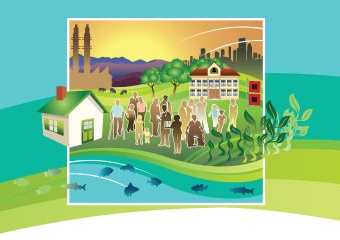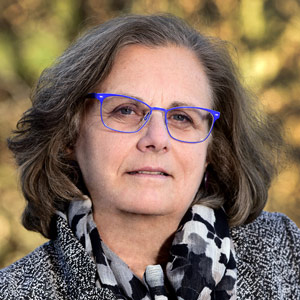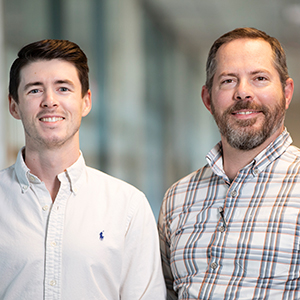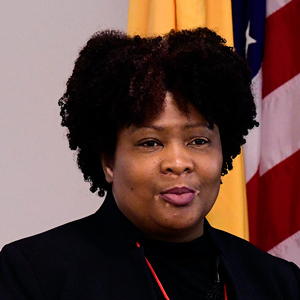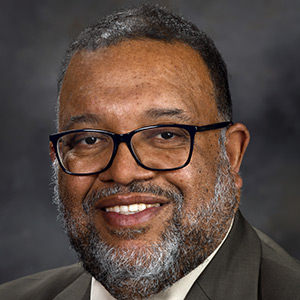Environmental health scientists forged a new partnership with implementation scientists to discuss how, together, they might address challenges and improve environmental health equity, during a two-day workshop held on Feb. 28 and March 1.
The Advancing Environmental Health Equity Through Implementation Science workshop was a joint effort among NIEHS and the following entities, which also are part of the National Institutes of Health.
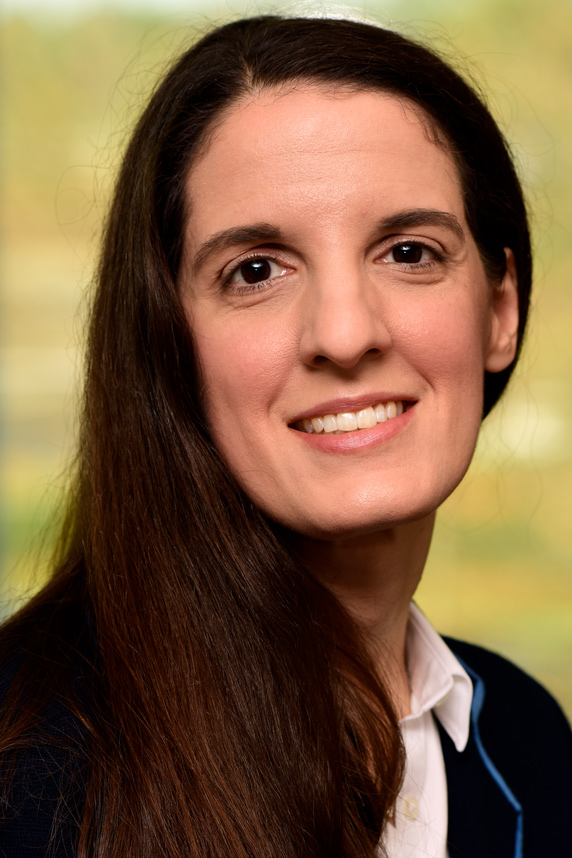 Martin, who was trained as a medical anthropologist, explained in this podcast interview several ways in which implementation science can be applied to the field of environmental health. (Photo courtesy of Steve McCaw / NIEHS)
Martin, who was trained as a medical anthropologist, explained in this podcast interview several ways in which implementation science can be applied to the field of environmental health. (Photo courtesy of Steve McCaw / NIEHS)- Center for Translation Research and Implementation Science at the National Heart, Lung, and Blood Institute.
- Eunice Kennedy Shriver National Institute of Child Health and Human Development.
- Fogarty International Center.
- National Cancer Institute (NCI).
- National Institute of Mental Health.
- National Institute on Minority Health and Health Disparities.
- Office of Behavioral and Social Sciences Research (OBSSR).
- Office of Disease Prevention.
Workshop co-chairs included Lindsey Martin, Ph.D., a health scientist administrator in the NIEHS Population Health Branch (PHB), Gila Neta, Ph.D., program director for implementation science at NCI, and Dara Blachman-Demner, Ph.D., a health scientist administrator at OBSSR.
Defining implementation science
Implementation science is the study of methods to promote the uptake, scale-up, and spread of evidence-based practices, interventions, and policies to improve population health. Implementation science is part of theme two of the NIEHS strategic plan — Promoting Translation: Data to Knowledge to Action — to encourage the application of prevention and intervention strategies to reduce or avoid environmental exposures and their resulting health impacts.
Martin and Rick Woychik, Ph.D., director of NIEHS and the National Toxicology Program, offered a real-world example from the Clean Cooking Implementation Science Network that applied implementation science to promote the uptake of clean cooking technology(https://ehp.niehs.nih.gov/doi/10.1289/ehp1018) to reduce household air pollution (HAP).
Unsafe cooking practices lead to HAP in homes around the world and disproportionately affect the health of women and children in low- and middle-income countries. Researchers are studying strategies to promote the uptake and appropriate use of cleaner cookstoves to replace HAP-generating cookstoves. Understanding the related individual, community, societal, and policy factors are essential to supporting sustainable adoption.
 A woman cooks indoors on a makeshift cookstove. (Photo courtesy of Marvin Minder / Shutterstock)
A woman cooks indoors on a makeshift cookstove. (Photo courtesy of Marvin Minder / Shutterstock)Challenges to implementation
“Could implementation science be the missing piece in addressing environmental health disparities through environmental justice research?” asked Melissa Smarr, Ph.D., a PHB health scientist administrator.
To achieve equity, barriers must first be worked through and understood. For example, structural racism may make implementation more difficult due to long-established interventions that might not serve all people equally. Therefore, de-implementation can be just as important a consideration, according to Rachel Shelton, Sc.D., from Columbia University.
“We can introduce new programs and policies, but we also need to be thinking about how we de-implement programs, policies, and practices that are already in place and are harmful,” Shelton said. “This is a new and emerging area of implementation science.”
Times of crises, such as environmental disasters, also offer a unique and challenging setting for implementation science. “Often, there are few evidence-based interventions, so this work must be developed in concert with risk reduction research to help achieve needed public health measures to improve recovery and adaptation of impacted populations,” said Aubrey Miller, M.D., NIEHS senior medical advisor.
The unique environments of different environmental disasters (such as wildfires and floods) and short, often unpredictable windows to implement evidence-informed interventions introduce context-specific challenges to implementation science studies, according to Nicole Errett, Ph.D., from University of Washington. “Strong, trusted relationships with communities and practitioners, and advance planning, are key,” she said.
Implementing a future
Co-keynote speakers and directors of the Penn Implementation Science Center, Rinad Beidas, Ph.D., and Meghan Lane-Fall, M.D., provided a foundational overview of implementation science.
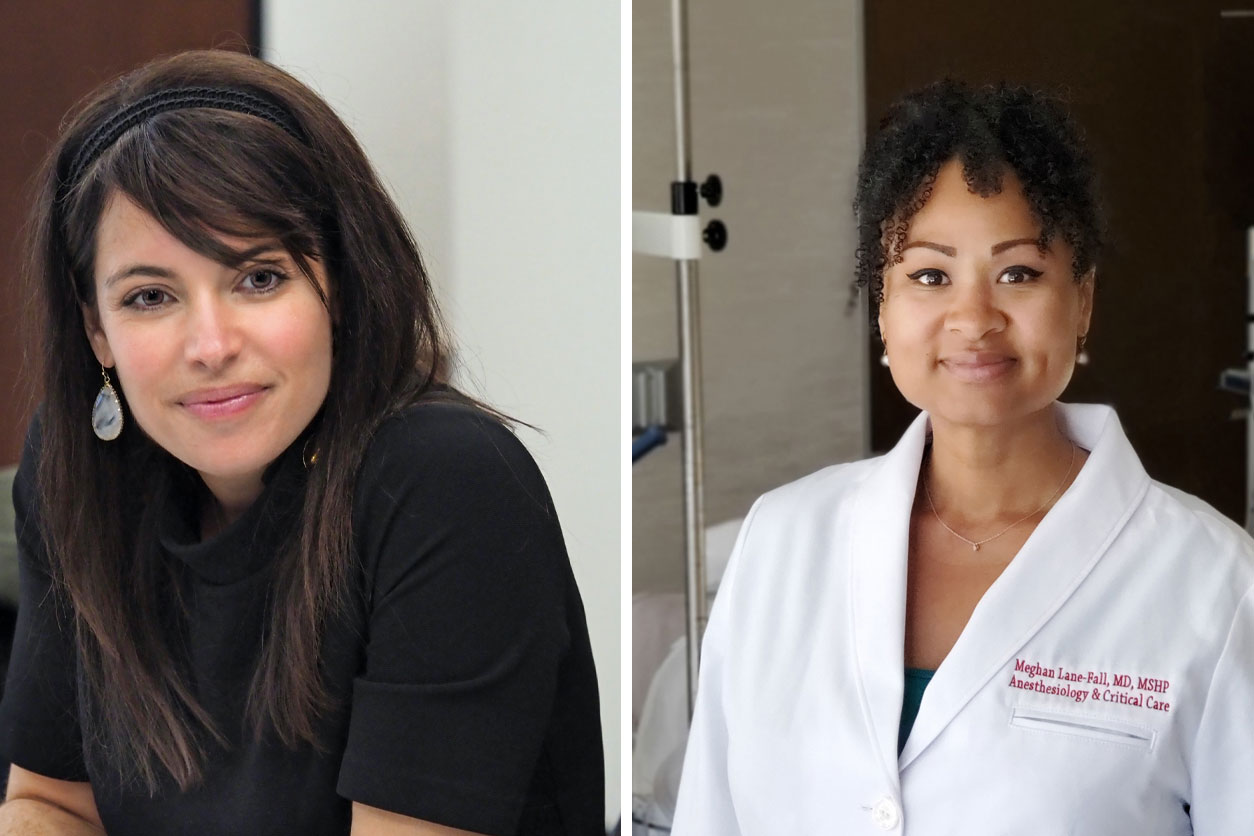 Keynote speakers Beidas, left, and Lane-Fall, right, shared how implementation science can be applied to environmental health sciences (see sidebar). (Photos courtesy of Lindsey Martin)
Keynote speakers Beidas, left, and Lane-Fall, right, shared how implementation science can be applied to environmental health sciences (see sidebar). (Photos courtesy of Lindsey Martin)“A main takeaway is that it is never too early to think about implementation science,” Martin said. “From better understanding issues of feasibility to planning for sustainability, you could incorporate implementation science throughout the research pathway.”
The workshop featured four panel discussions about four areas Martin said the fields of environmental health sciences and implementation science can grow together: environmental health disparities and environmental justice; prevention and interventions; climate change and disasters; and community-engaged research.
“Equity is really the cornerstone, and it needs to be front and center in how we think about science moving forward,” added Claudia Thompson, Ph.D., PHB chief, in closing remarks.
Citation:
Rosenthal J, Balakrishnan K, Bruce N, Chambers D, Graham J, Jack D, Kline L, Masera O, Mehta S, Mercado IR, Neta G, Pattanayak S, Puzzolo E, Petach H, Punturieri A, Rubinstein A, Sage M, Sturke R, Shankar A, Sherr K, Smith K, Yadama G. 2017. Implementation science to accelerate clean cooking for public health. Environ Health Perspect 125(1):A3–A7.
(Jennifer Harker, Ph.D., is a technical writer-editor in the NIEHS Office of Communications and Public Liaison.)





